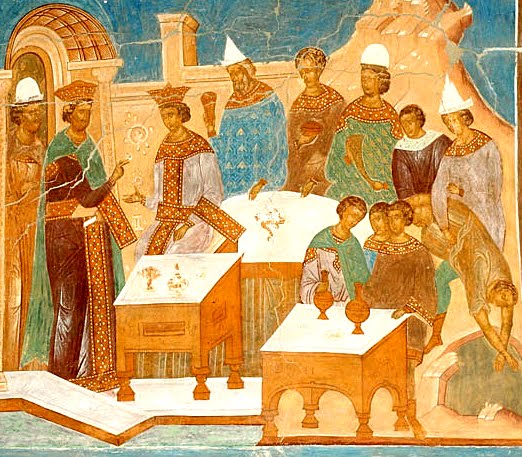

What does perfection look like in God's eyes? What is the perfect life on earth as Heaven sees it? It has nothing to do with our individual accomplishments. It cannot be expressed by Olympic gold or trophies or university degrees. In fact, it has nothing to do with our worldly attainments, but rather a negation of what our culture proposes to be excellent.

13th Sunday After Pentecost (1 Cor 16:13:24, Mt 21:33-42). The story of the Holy Scriptures reads as a history of gardens, a succession of vineyards, for the vineyard signifies the good life with God Who is goodness. Conversely, wild life creeping into the garden, ruining the vineyard, represents the loss of Divine harmony on earth. Let us open this chronicle of gardens and read of the story of our ancestors and of our own lives.
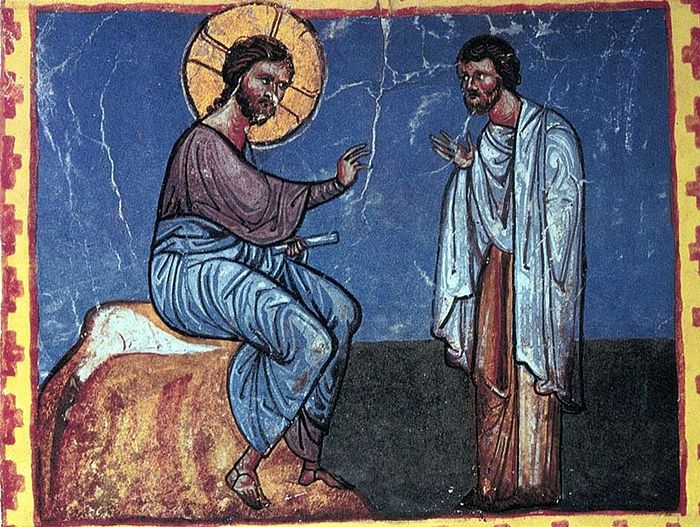
"What good thing shall I do that I might have eternal life?" A simple sentence. The reply from the Lord Jesus is also simple. But it may not be what we think we want for ourselves. The good and the true are always simple. Simplicity is one of the properties of God. It is Hellish life, by its nature a complex of deceit and delusion, that is complicated. And wholesale efforts to redefine God's good and simple world? These are a wilderness of mazes, replete with narratives that have no end or real direction. We need not go far to see examples. For we live in a world of deceit and delusion. Withal, God's simple and good life abides, unchanged and unchanging. "Taste and see that the Lord is good!" (Ps 34:8).
![]()
At no stage or moment of life can we say, "There! This is what I am about!" For the state of our soul is a mystery known only to God. It is at the end of life when the great revelation we have awaited is disclosed: "Who am I? What was my life really about?" Even with the Mother of God, whose faithfulness lay in her sinless life, a conclusion could not yet be drawn. Only at the end of life are we past every temptation and every occasion for sin. That she was faithful to the end is part of the bedrock of our Christian faith. What then do we call her end? For crossing that line is understood to be the outcome of sin, the disease which sin introduces into our soul. St. John of Damascus called it "the Deathless Death."
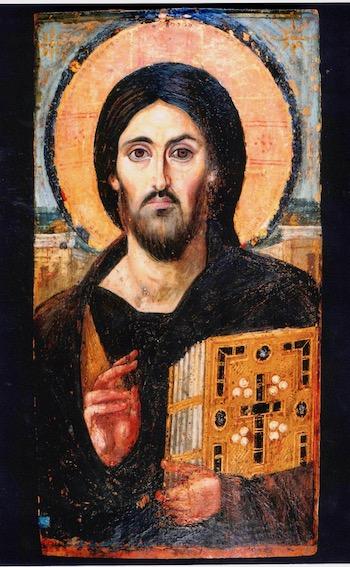
When the Ruler of All begins a brief parable introducing "a certain king," we hear irony. When He promises to describe the "Kingdom of Heaven," a phrase that has never been heard before, we listen in rapt silence. And when this marvelous Kingdom seems to be invisibly present where we already are, we realize that we cannot be sure of anything and that our measures and weights and boundaries have failed. But this certain King will take care of that, for he "wishes to settle accounts."
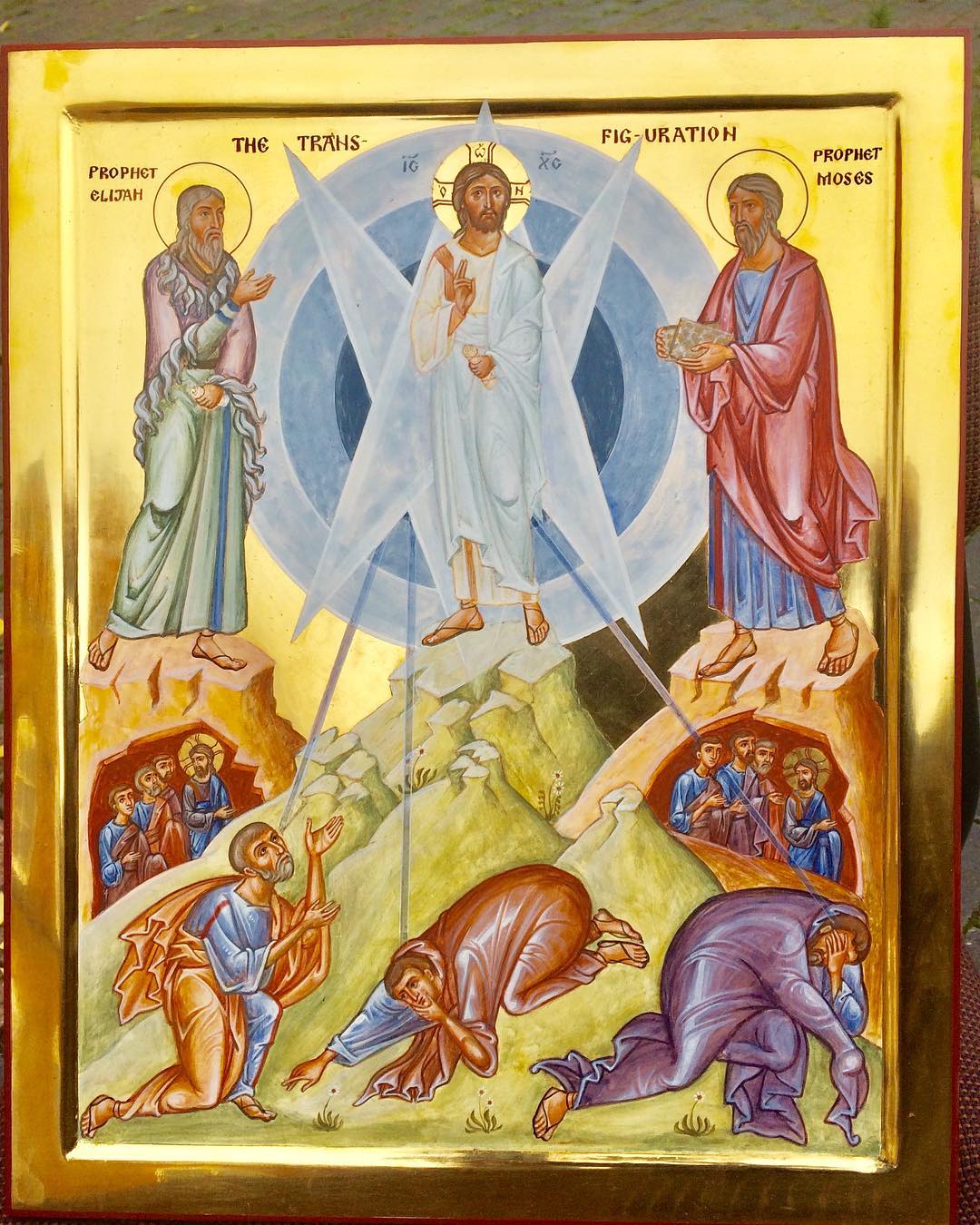
Who then Is This? A child of the poor? The Only-begotten Son of God and Eternal Word of Creation? A destitute vagabond and despised criminal? The King of kings and Lord of lords? Is this not the carpenter's son? Is this not the well-pleasing Son of God the Father? It pleased Him to be all things, "for all things have come of Thee, O Lord." Who might say that they have uncovered God's "true identity" when His Being far surpasses our poor instruments to comprehend Him? Let us press our foreheads to the ground before His Majesty and with St. Peter say, "It is good that we might be here."
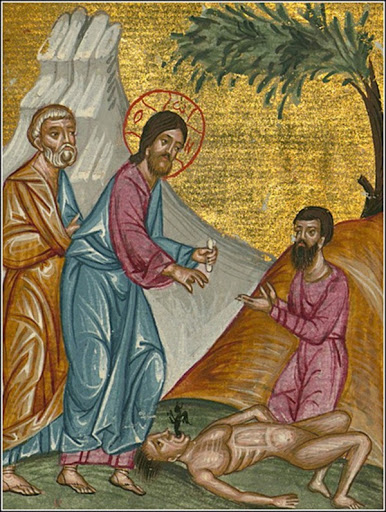
What is the meaning of life? If we express it in material terms, we see that our lives are spiritually empty. If we define it only in spiritual terms, we are aware of endless impracticalities. In fact, the spiritual world is interwoven into the material world as a Person of God is interwoven into the Son of man. We are left with a divine command, therefore: to discern spiritual significance in a material world, which will be our liberation from mortal life and the demons who haunt it.
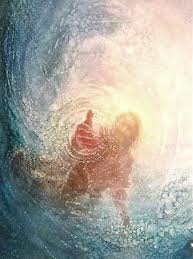
Jesus goes to a high mountain having sent the Apostles out into the world on their own. Is this not a kind of "dress rehearsal" for the Ascension? As we might expect, they are jittery having no real direction. And here we see a haunting image of our own world — drifting and, without really knowing it, sinking into oblivion. Yet, our little story this morning concludes with a single sentence, which opens before us the Kingdom of God! It may appear at any time, in any place, if only we have eyes of faith to see it. Please join the Hermitage in our weekly meditation, "Come!"
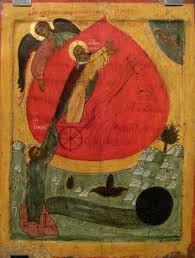
The Lord's stepbrother, St. James, the Bishop of the first patriarchate Jerusalem, singled out Elijah's nature, which is no different from yours or mine. Yet this human body entered Heaven. Let us meditate on this, for this is a key that unlocks the deepest meaning of our own lives. We must trek nearly two miles above sea level, standing near to the Son of God and His Disciples, meeting with Moses and Elijah, and hearing the Most Holy voice of Father God, to venture further into this mystery touching the dignity of our bodies, a dignity worthy of this company and of Heaven itself.
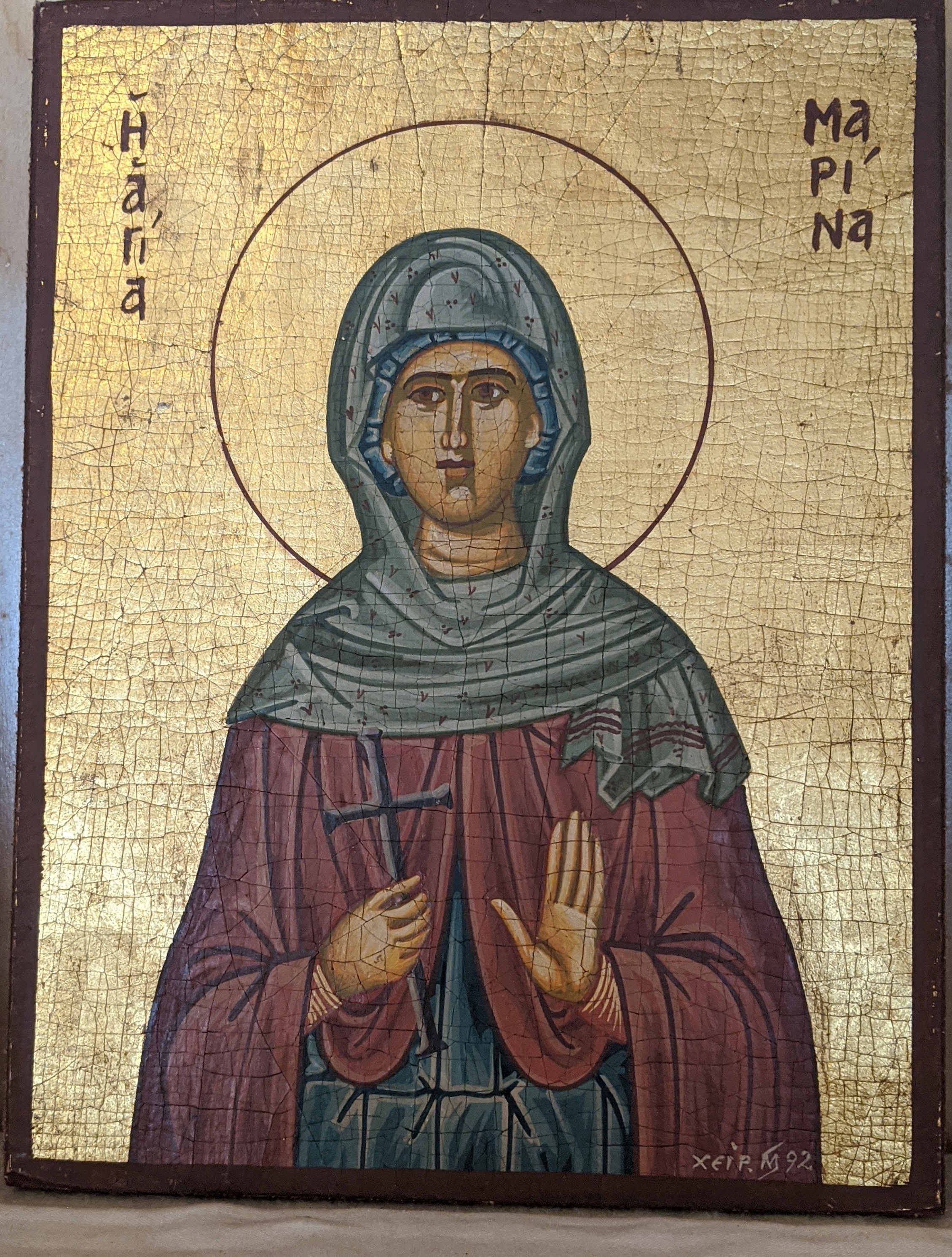 July 17, 2020 (Holy Calendar), Feast of St. Marina of Antioch (b. 289)
July 17, 2020 (Holy Calendar), Feast of St. Marina of Antioch (b. 289)
On the Altar this morning, our icon of St. Marina, a patroness of chastity. We call to mind the 7th-c. Father, St. Isaac of Syria, who wrote that the two fiercest struggles of the Christian journey are protecting one's chastity and resisting the feeling of abandonment and its follow-on of cynicism and depression. We see the connection between these two: casual sex always means abandonment (which the soul unfailingly feels), and cynicism sets the stage for more casual sex as the heart seeks meaning where there is none. We at the Hermitage ask, "Which do you want? Sex without love or love without sex? Protect us, Blessed Marina, Great Martyr, who chose genuine love over all the world had to offer.
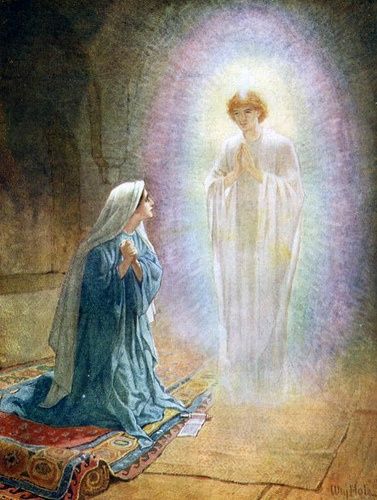
What more trenchantly speaks Heaven's goodness into the world than a truly shining life? It was the vocation of St. Gabriel the Archangel to announce the conception of three most shining lives into human history. In this, he stands amongst the dust of this world speaking clarity. He stands at the gate welcoming simple souls who long to see the real, the true, the shining.
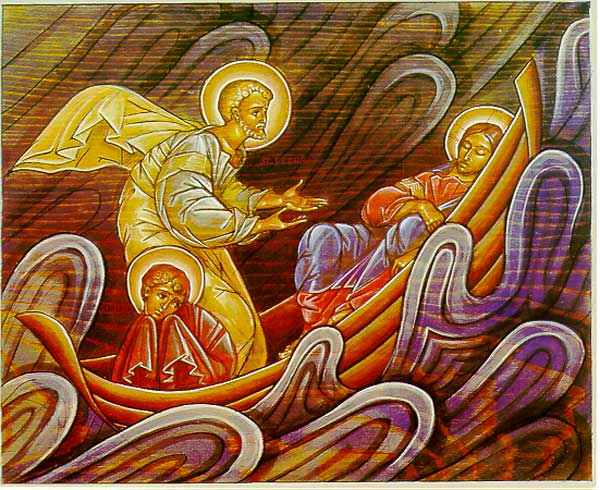
"He returned to His city," says St. Matthew in passing. Remarkable! His city! Let us meditate on this marvelous place where the gates and courts of God were established on the earth for a brief time. We will learn much about Him, and we will recall much about ourselves .... as He would have us to be.
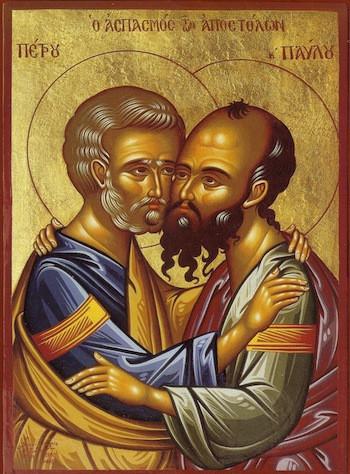
The night is far spent, and the Church faces grave divisions. At such a time we look for patron saints, great saints who can intercede for us. For (certainly in the history of the U.S.) there has never been a more urgent hour than the present one. Where can we find the pass through these high mountains? Where is the narrow way avoiding heresy and perversion on one side and disunity and rancor on the other? Ss Peter and Paul found this path. They too were plunged into the intense furnace of opposing theologies, of murderous, demonizing dissension, of wrack and ruin to one's cause and to one's person. Yet, by the grace of God, they forged a Church. Pray for us Ss Peter and Paul, for you know us, and you understand our times.
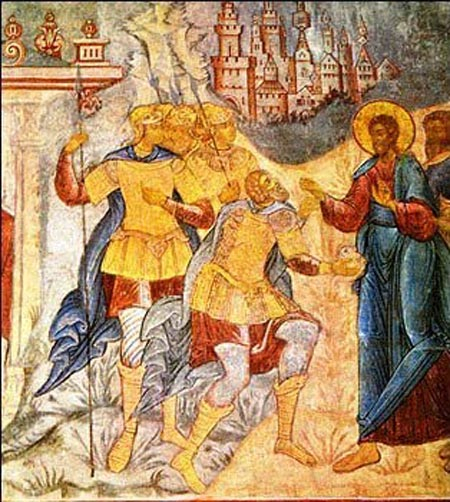
"Go! Be it done unto you as you have believed!" Two divine commands that restate a fact of our human nature. That is, we can only find what we are looking for. The thoughts of our hearts play a controlling role in the "reality" we assemble and the narratives we propose to explain reality. Nowhere is this principle more important than in our spiritual journey. To use St. John's phrase, we must be like Him to see Him as He really is (1 Jn 3:2). The centurion of our Gospel lesson today lives under, and wields, authority. He has no problem seeing the One Who has authority over Heaven and earth (Mt 28:18). He knows a Supreme Commander when he sees One. But do we? What narratives do we propose? What reality do we see? Will we see Him as He is? If not, then we can have no part in His Kingdom.
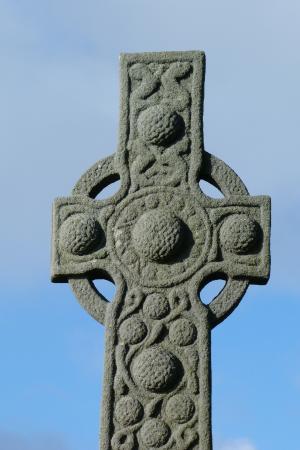
As Jesus makes plain, the choice between the Kingdom of God and worldly life is basic. It touches everything. Compromise or blending is not possible. We share today our voyage from the world and how it led us through (seemingly) the most far-flung routes. In God's wisdom and power, we arrived where we had begun and received what was ours from the start.
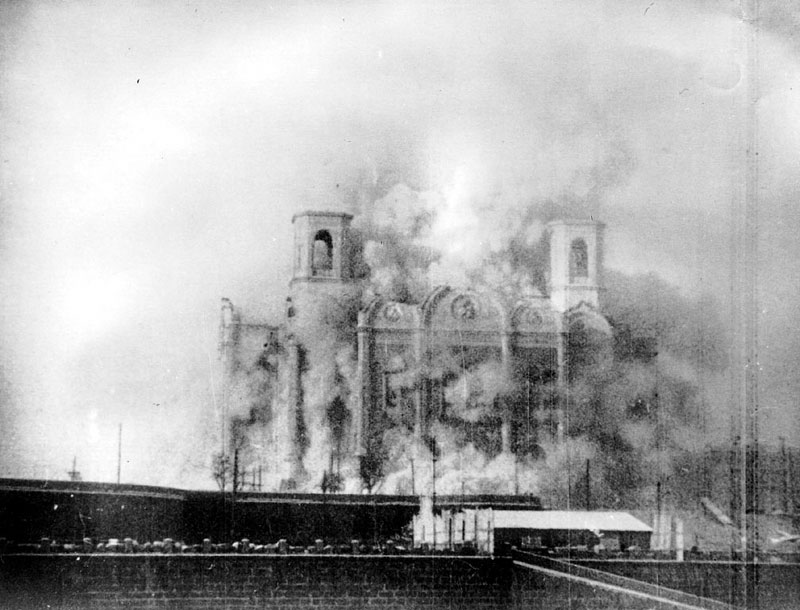
People may assume that we former Roman Catholics have found refuge in the Russian Orthodox Church. After all, church refugees and would-be refugees now cover the U.S. landscape. But we do not see our Church home in this light. We have not retreated from the Church, but the opposite — we have gone to her heart, which is Catholic and an indomitable adversary to secular culture. This last is the great cause of our time: a menacing secular culture that seeks to obliterate all vestiges of belief in God and God's morality. On whom can we depend to stand up to this fierce onslaught of chaos and violence? This is the vocation of the Russian Orthodox Church, tried in the furnace of Soviet oppression. She has been prepared by God for the present moment. And we are humbled to stand with her.
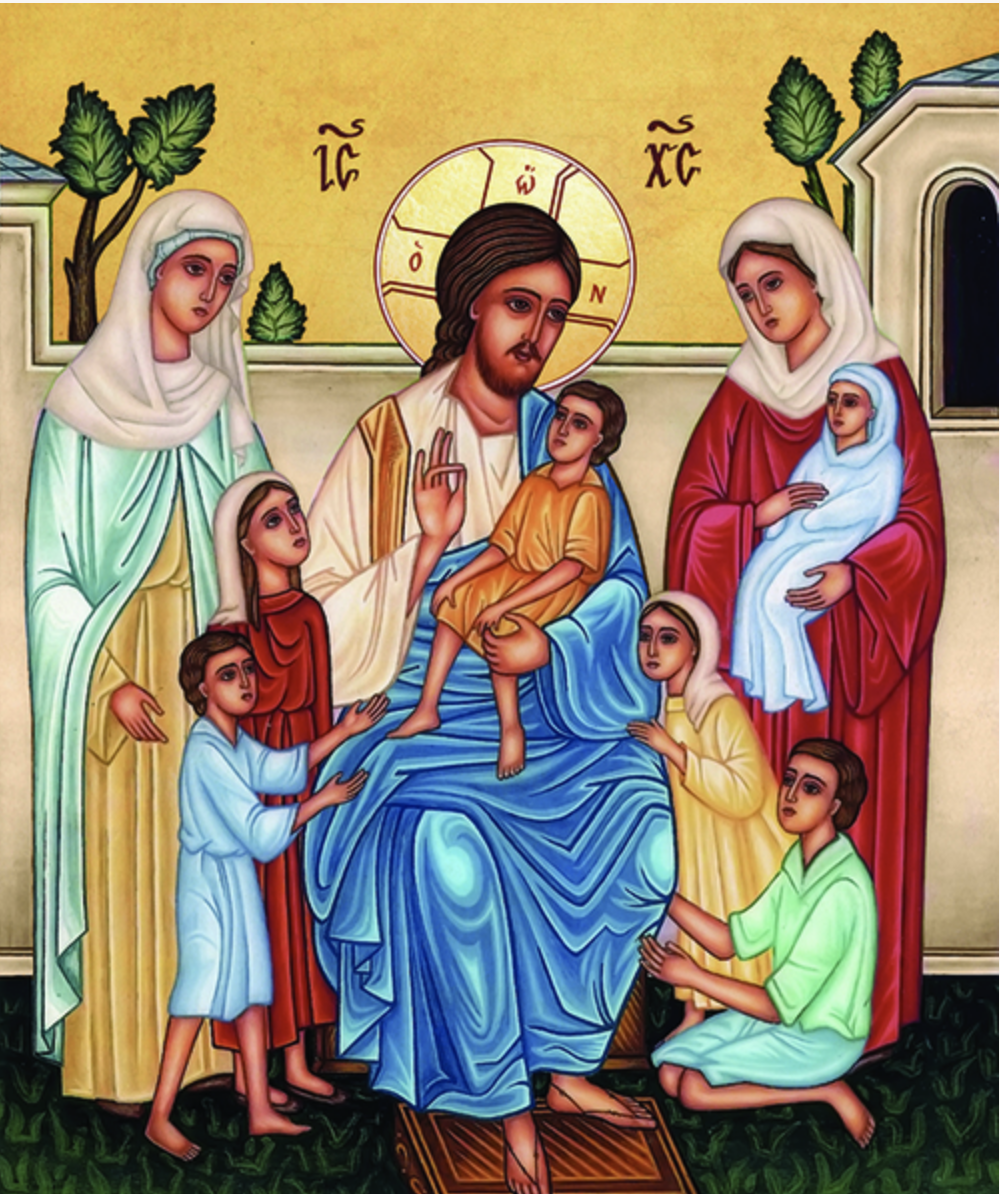
What is a saint? Yes, St. Paul writes that all believers are saints (Rom 1:7, et al.). But that begs the question concerning the nature of faithful life. What is the faithfulness of a saint, then? At the Hermitage we look to the Community of the Most Holy Theotokos and of the Beloved Disciple to understand Christian life.
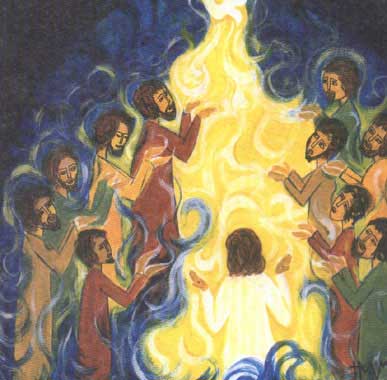
We seek God yet find ourselves standing always in a swirl of holy mysteries, which we shall never order, much less categorize. It is our life's work, therefore, to receive each clue as precious and to search out the hidden roads from thing to thing, which God has set out for us: Pesach-to-Pascha, Shavuot-to-Pentecost, rivers of blood to rivers of living water. On this day, we have much to meditate upon.
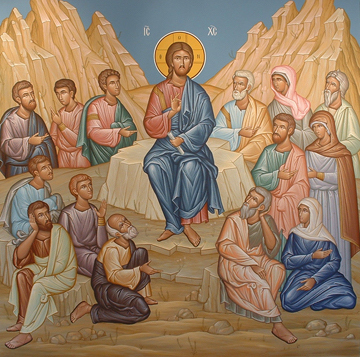
What is the difference between knowledge and wisdom? In our post-scientific-revolution society, we expect some kind of convergence between these two things .... which is to say that our understanding of "truth" is gravely flawed. Today we celebrate the minute pains and momentous sacrifices that have preserved the changeless faith which the Son of God has bequeathed to us. It is also a story about and for our civilization and our times. We cannot claim to be Christian until we come to terms with this story.
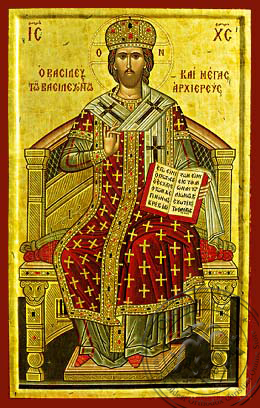
Our longest and most comprehensive Gospel is Luke-Acts beginning with the prophecy of the birth of St. John the Forerunner and concluding with St. Paul's entrance into Rome. But shouldn't this be a three-volume set? Are not the Gospels about the promised unlocking of the Scriptures? And is not the Book of Acts a depiction of life lived according to these revealed principles? Where is the missing, most valuable, middle volume in which the Lord takes His disciples into a kind of wilderness for forty days and teaches them plainly and directly? It has never been revealed. Yet, we receive valuable clues at the point of Jesus' Ascension into Heaven. Let us consider them carefully, for our own "life lived" will depend on these divine principles.
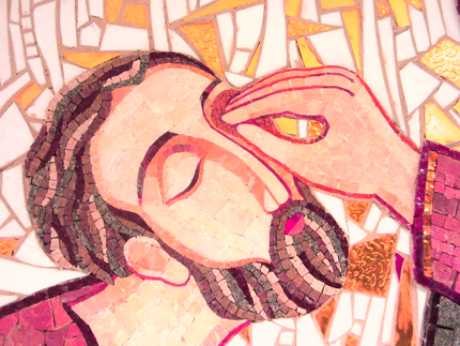
This year and today is our Covid-19 Gospel lesson, for it restores our perspective: which end is up, what is right, and Who is Who. He is our Creator. We are His creatures. He alone is life. All else beside Him is death. We depend entirely upon Him for everything: for every cell of our bodies and every atom of the beautiful earth are His gift to us — an incommensurable gift that no one else and nothing else can give even in the tiniest measure.
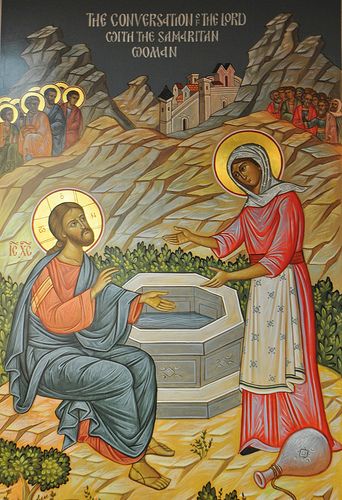
Sunday of the Samaritan Woman (Acts 11:19-30, Jn 4:5-42). Today is set before us the ideal of God-with-us. St. John's Gospel begins with the grave words, "He came unto His own, and His own received Him not" but then progresses to an encounter with God at Jacob's Well culminating in a whole town declaring, "We believe, for we have heard for ourselves, and we know that this is indeed the Savior of the world." Here is a story of spiritual seeking and longing .... and then of finding and rejoicing. Here is what we have lived for, what we have longed for, and what we today receive: God, plainly revealed, and salvation.
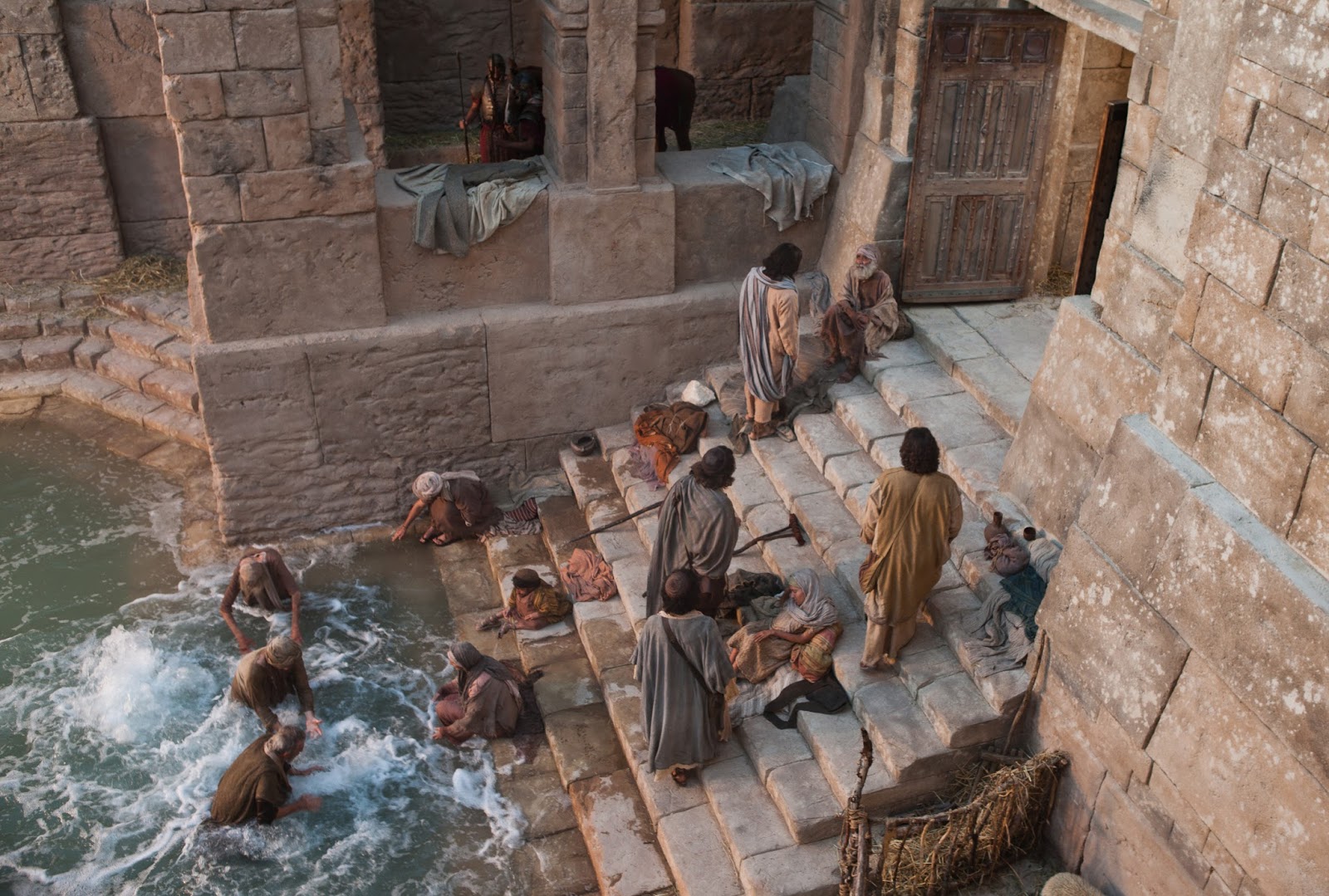
People ask why .... are even affronted that ... Jesus should say to the paralytic man at the Bethesda pool, "See that you sin no more lest something worse should befall you." What is this sin? We do not know much about the paralytic man, but certainly we can say that everyone who comes to this pool is an idolator — a most serious affront to God. For the pool is an Asclepion — a colonnaded temple surrounding a pool. These were found throughout the Roman Empire, where invalids worshipped the god Asclepius hoping to be healed. It is a dark, dog-eat-dog world intended to display the anti-world to Heaven's Kingdom. Yet, in our Epistle lesson, Acts 9:32ff, we are presented with the corrective: the Christian community of love. This morning we contemplate the basics: the elemental world forever or the Kingdom of God. The earliest name for Christianity was "The Way," and most surely it is about the Crossroads. Which way will we go? The choice is always before us.
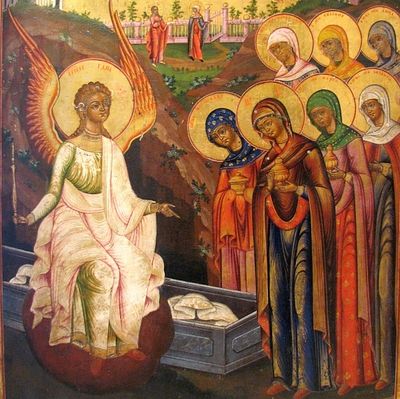
To be a Myrrh-bearer to Jesus is to be in attendance to a great King that no one else perceives. It is to honor the God and King that no one else honors. He is the highest of Kings and greatest of Lords. And beside Him death, even Hell, cringes in horror. Today, we honor those who honored. We revere those who revered. We humble ourselves imitating those who were humble. For He is our Lord and our King, and beside Him all else is nothing at all. Bear myrrh for Him. Go to the sanctuaries throughout the world and worship Him boldly, courageously, and faithfully. Anoint the holy spaces within you to "make Him room." And on the holy days, bow your heads at church, for He reigns. He reigns today. And He reigns unto the ages of ages. Do not wait in passivity, but crown Him with many crowns. He is the Lamb upon His throne.
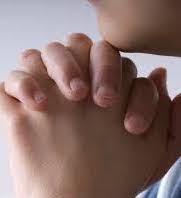
Belief in God is the natural state of man and woman. It is encoded within us at birth. It is the world and an act of the perverted will that undermines the beautiful soul emplanted within us at conception. But divorce from God is a fearful act of withdrawal and a diminishing of our full stature. It is upon this foundation of fear and doubt that Jesus chooses to establish His Church. The Church gathers us as living souls. We participate in the Holy Spirit there receiving baptism and renewed baptism (reconciliation). This is His plan. This is His will. And from here He can once more speak into our childlike hearts, to which belongs the Kingdom of Heaven.
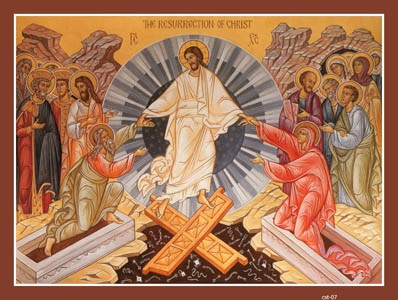
Christos anesti! Christos voskrese!
Christ is risen from the dead,
trampling down death with death,
and on those in the tombs bestowing life!
The Homily of St. John Chrysostom,
Archbishop of Constantinople, on Great & Holy Pascha.
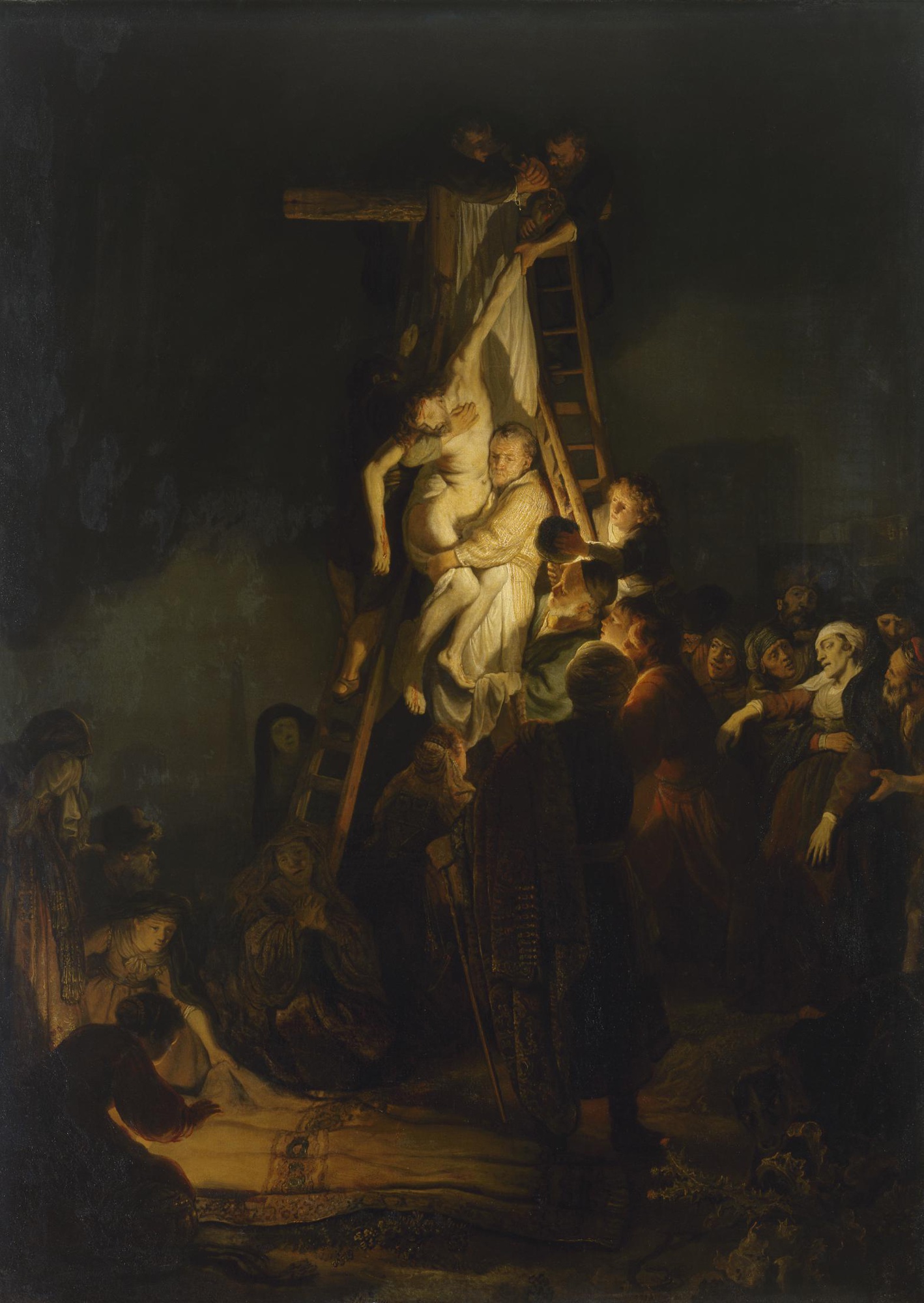
I have heard the question many times: "How could God have made a world like this one .... if there is a God?" But "Christ did not come to explain human suffering or to eliminate it. Rather, He came to fill human suffering with His Presence" (Archpriest Gheorghe Calciu). And this world that He cannot change? This is the world that we have made. At every step, we might have chosen another — a good world. But we did not. Yet, He chooses to be with us. In this, He must suffer. Here is Great & Holy Friday. Forever enshrined — God's Son upon a Cross because He chose. He chose for us.
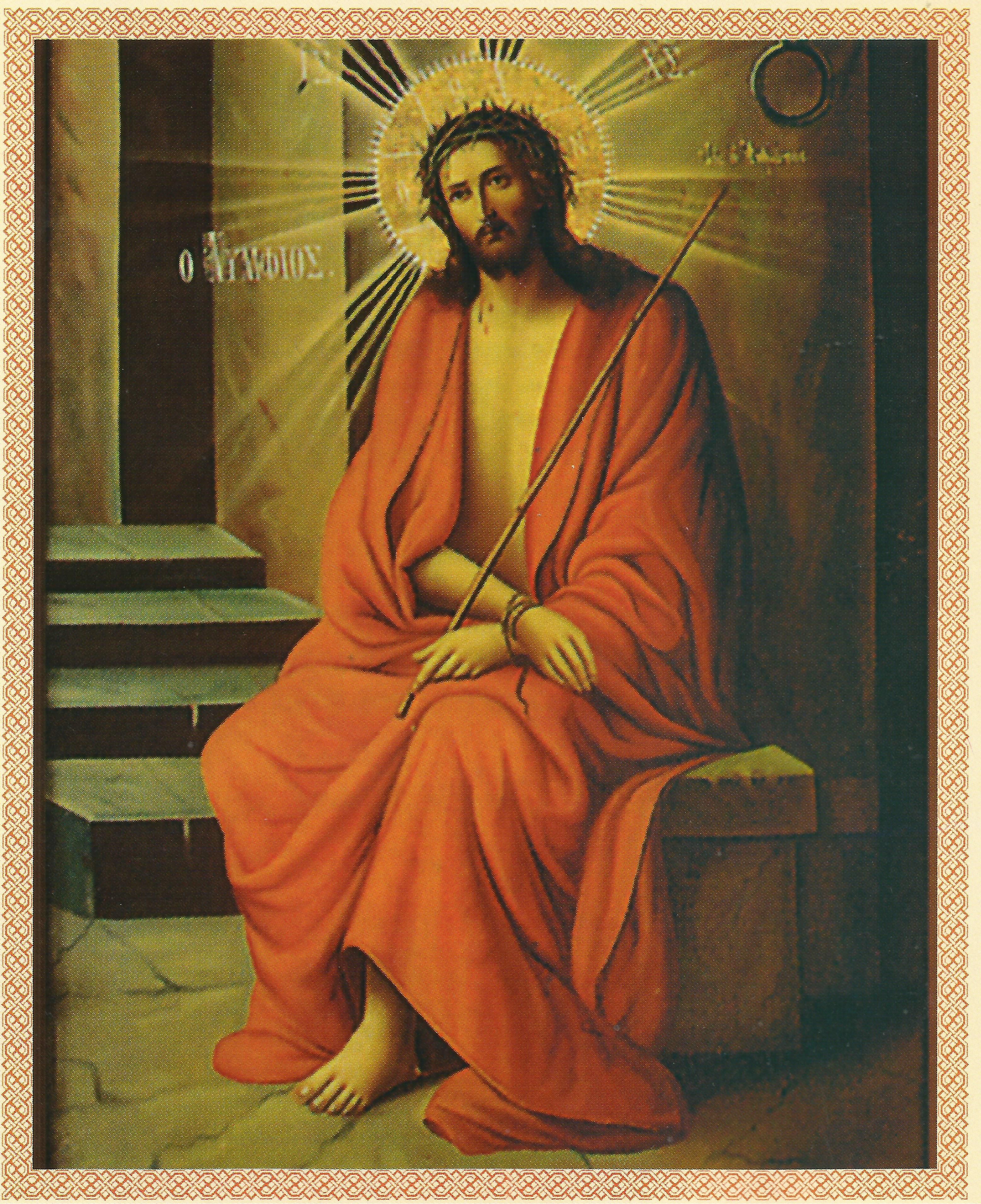
He rides into the Royal City, into the Vineyard, to the Wedding Banquet. He is the Son, the Heir, the Bridegroom. All has been made ready for the Marriage of Heaven to earth. In this, the two greatest questions set before each human life are enunciated: "Who do you say that I AM?" (Mk 8:29) and "Do you love Me?" (Jn 21:15). Here is the final crossroads — for them and for each of us. Which will it be? As in any marriage proposal, there there can be no third way: either "Yea" or "Nay." And as in marriage, consent must be all-encompassing, life-changing, and sacrificial. Every hour of every day: sacrificial. Here is the love your life. But will you claim it?
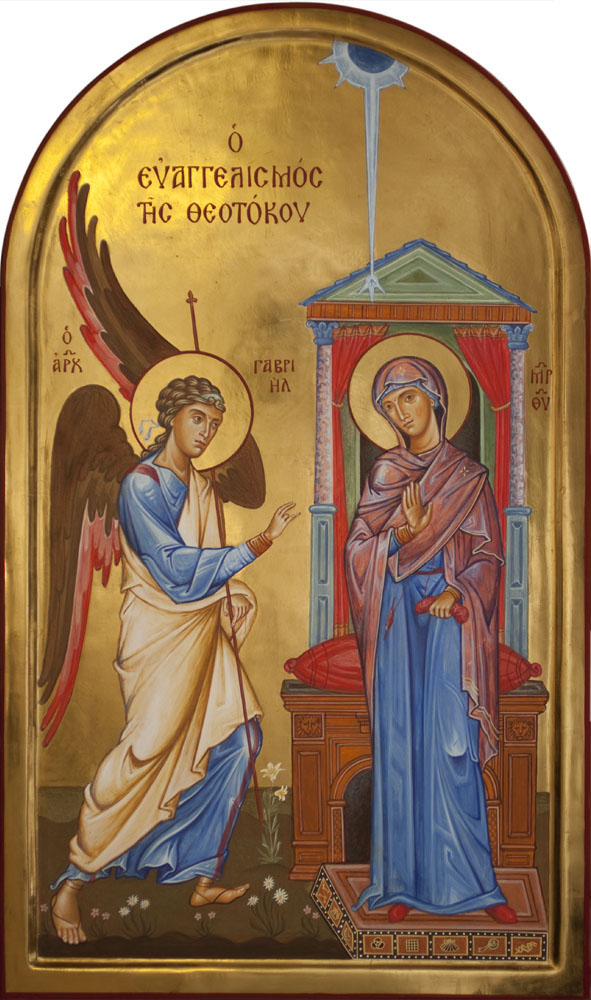
In the chaos of our bad decisions, of our many compulsions, in the busy-ness of our egos and the noise of the world, we had lost our way. We had forgot our identity. Our lives had become wandering mazes lost. Then God in His love looked to the free choice of His Son and the consent of a peasant girl to set before us our own true identities: the ideal of a man and the ideal of a woman. In these faces we might recognize our own truest selves, and following them we might find our way out of darkness into light, where God dwells. Here is safety. Here is protection against the ravages of the world. Here is life.
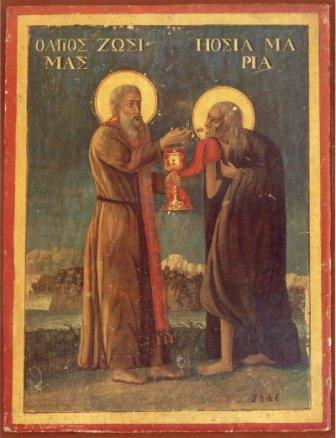
May I share truths about our God? The world is God's implacable enemy. He desires each of us to turn away from it and home to Him. Our life here is brief, but His is forever. For Him death is not a tragedy but a holy passage into joy. Now He has called each of us into a wilderness to be alone with Him. This space from which we may not veer is our quarantine area. This time He has carved out that we may ignore the demands of worldly life. At death, it is too late to begin spiritual preparation. In His love, He has ordained a NOW. Go to Him, for He is waiting.
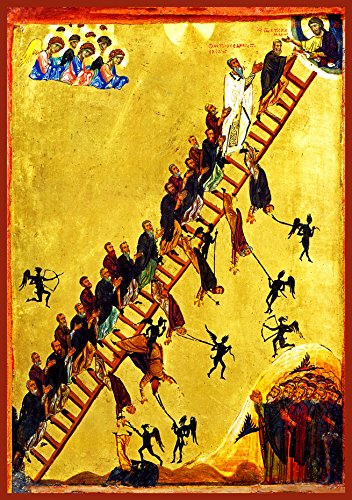
Which ladder is it that brings you to your own starting place and original intention? "The Ladder of Ascent" of St. John Klimatikos (translated "Scala Paradisi") reminds us of a related word, "Scale," where we "weigh in the balance." As we ascend through Lent toward the Kingdom of Heaven, our burden is lightened, our bodies are diminished, and our souls are magnified. Do you remember the lightness of being you once knew? Our minds are "renewed," St. Paul says (Rom 12:2), not invented. Our Lenten pilgrimage is an inner journey to our own spiritual beginnings.
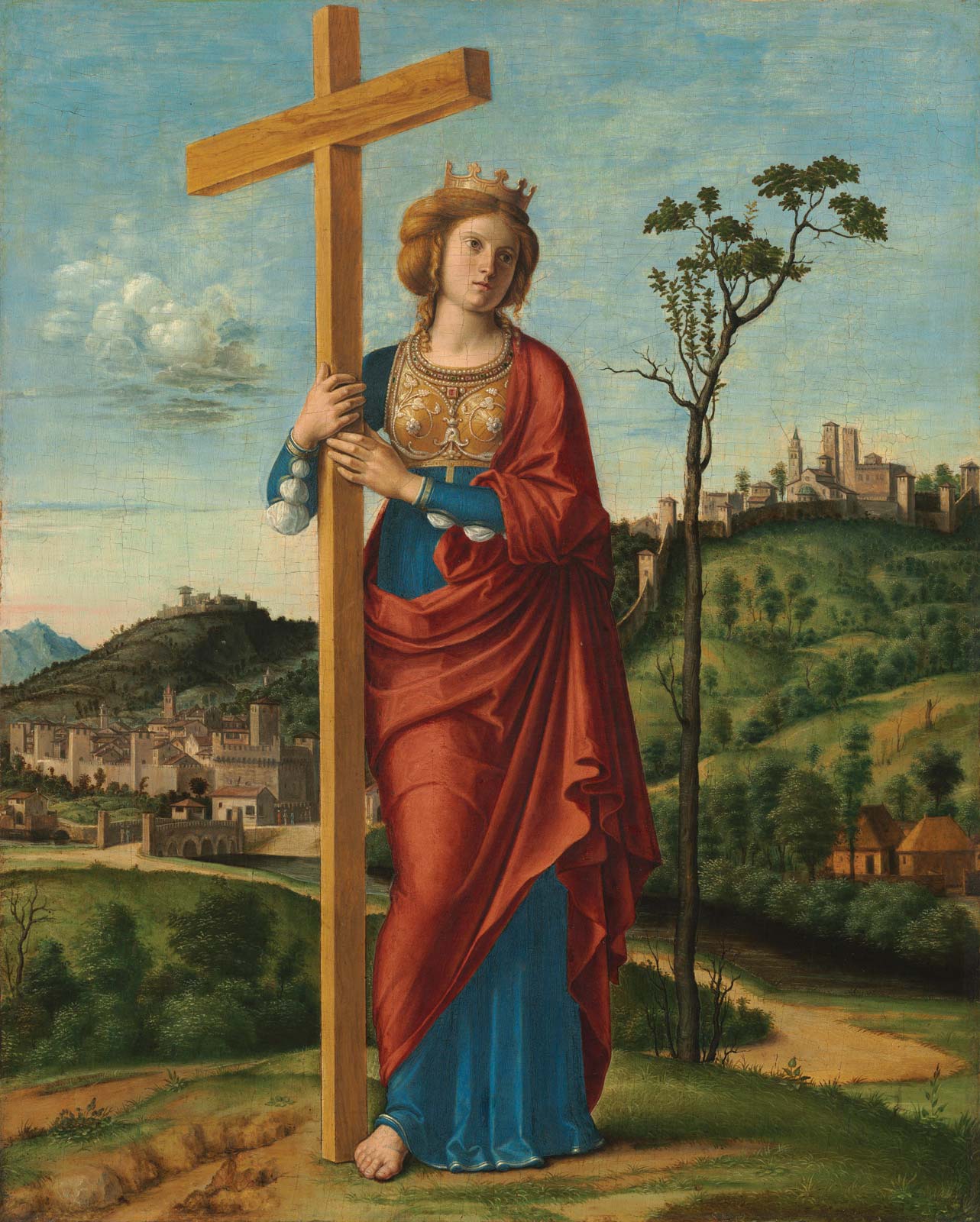
On March 6, 326 in Jerusalem a burst of divine light set before us a revelation for the ages: the Precious Nails and Life-Creating Cross of Our Savior emerging from beneath the temple of Venus. Is this not the great crossroads of nearly every human life? Is it not the story of humankind? Here is the crossroads between "eros," the lust of the flesh for the world, and "agape," the self-sacrificing love of even our God. One path leads down a path of darkness-unto-blindness & prison while the other leads to the light-that-is-life & freedom. Here in this season of plague, look upon a canvas painted by our God. He has displayed it in His love and hope that we all be guided safely home.
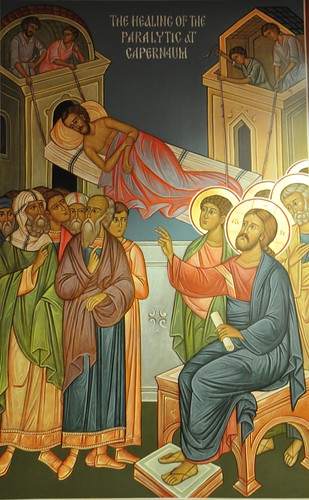
Today is more than a saint day, for it signifies a great boundary defining Catholic faith and worship. Is human reason to be trusted as the faculty that will lead us to God, or do we trust the human spirit, the soul? This debate between logic and prayer is represented by Barlaam and St. Gregory Palamas respectively. It is also the story of the Western Church, overheated by dialectical philosophy, departing from an ancient Church founded by the Lord Jesus to perceive through its spirit and to pray from its soul.
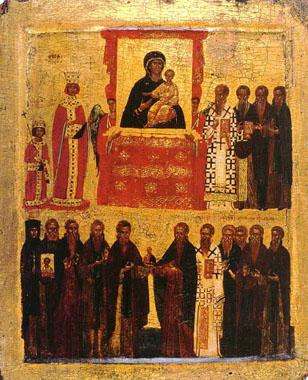
Today we celebrate the Seventh Ecumenical Council, which ended the persecution of Christians venerating icons. Why will you, even now, rarely find icons in a Western Catholic Church (Roman or Anglo-Catholic) and almost never find a statue in an Orthodox Church? This is not simply a matter of taste, yet neither is it governed by ecclesiastical laws. It is all the more amazing, therefore, that is should be so. Reflecting on this basic fact will lead us to understand essential differences between the Western Church and Orthodoxy and the life of faith, therefore, for one-and-a-half billion Christians in the world.
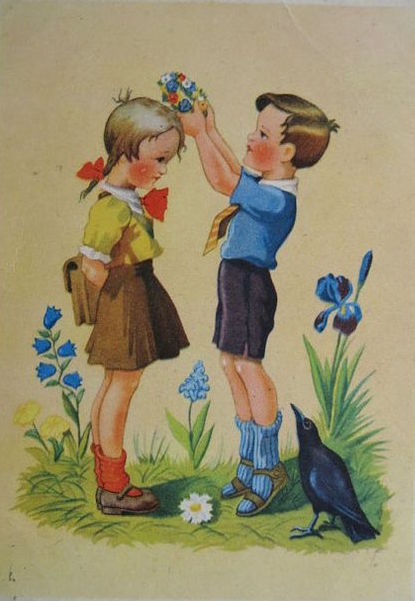
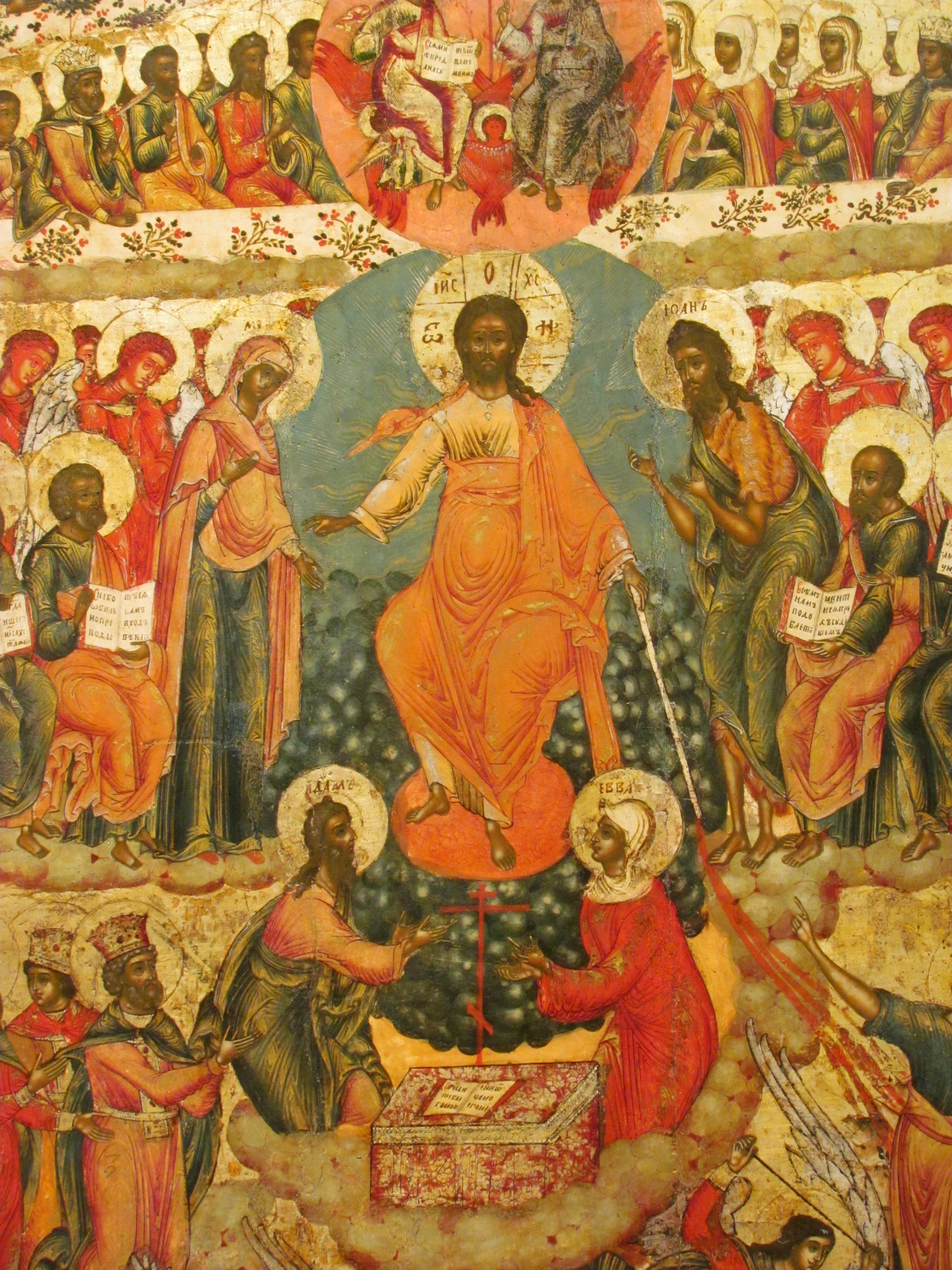
From at least the 2nd century to the present, a surprising number of the faithful have believed that Jesus sweeps everyone into Heaven on account of His famous compassion. "But what of the content of our lives?! What of the state of our souls?!" we may ask. But the reply is steadfast century after century: "It does not matter, for God is merciful!" What a pity that so many lives, eternal lives, should be thrown away because of this dangerous heresy. The Lord Jesus Himself tells us plainly, "Of My Own I can do nothing for you. As I see, I will judge." Yes, His personal feelings may move Him to pity in the private spaces of a grieving Heart. But this grief will not alter His Judgment. Yet, at the end of the day, it will be ourselves who act as judge. For all our lives, we have been the masters of our thoughts and choices, the "decider" of the content of our personal histories and the corresponding state of our souls. Jesus will see and then act based entirely on this: what is, not what might have been.
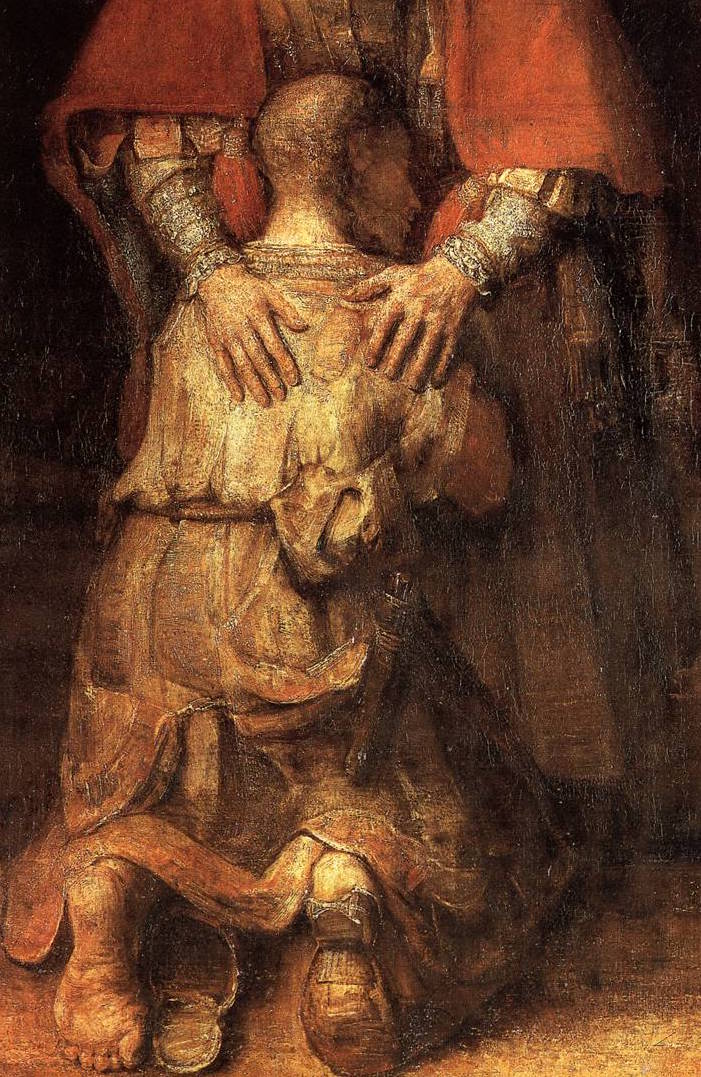
Continuing in the five Sundays of Pre-Lent, we enter our third: Prodigal Son Sunday. That this story is dear to the Lord's heart is clear, for it recasts last week's parable of the remorseful Publican and proud Pharisee in a new setting. The Publican who chose for worldly life now repents with his eyes downcast, on his knees, with his face (in a sense) pressed to Father God's tunic. The Pharisee looks upon him with contempt, not knowing the powerful transformation within that has carried him to God's bosom. This week the Publican is cast as a Prodigal Son who chooses for the world but then arrives to the same brokenhearted state and thence to contrition and grace. The Pharisee is cast as the older brother. These parables reveal the sinews and nerves of spiritual growth, of our own advancement to Heaven, and to our own transformation — intimacy with and likeness to God. The parable reveals our own stages of spiritual development, culminating in our becoming the Father. Then, we apply the Father's mind and heart in understanding the Younger Son.
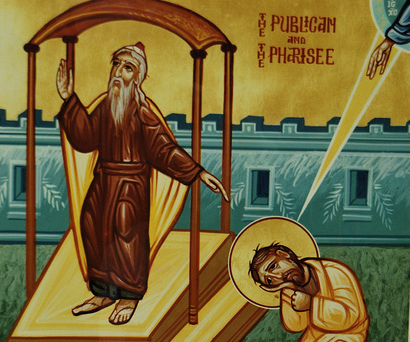
Two young men stood at a crossroads. One chose the enticements of worldly life and prestige. The other chose religious life. But they both ended up at same destination, the world — upward mobility and vanities. Being a religious myself, I am more mindful of the Pharisee than the Publican. I know the story of the man who chose religious life but ended up becoming a slave to worldly culture. Is this not the story of our great religious communions? Where does one send a family to form their children in church without fearing some kind of unwholesome indoctrination? Has the toxic culture won? Well, it is certainly a pitched battle.
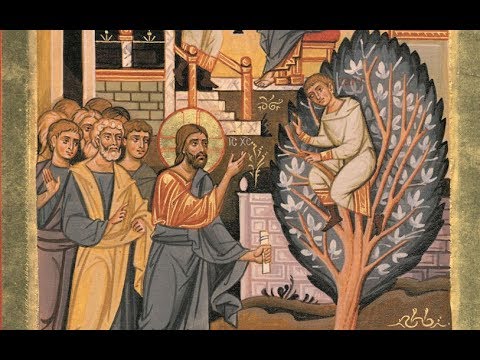
What timezone is Heaven in? It is always now. Heaven is an eternal now. Eden was an eternal now. Jesus says we must go back to the hearts we had as children to enter this marvelous and unending now. Wasn't that the essence of a Saturday afternoon when we were nine or ten? A now that had no boundaries? This is the nature of salvation and the goal of our journey to God — to live in His godly now without fear, without fretting, without plans or designs. Dependent on Him. Now. Forever.
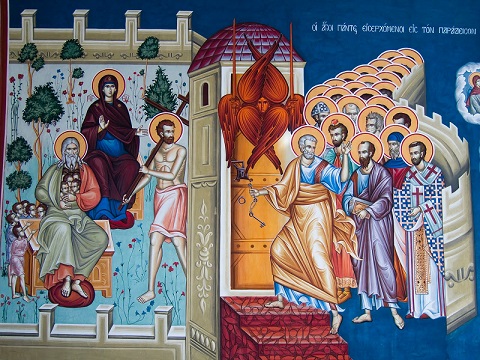
"Repent! For the Kingdom of Heaven is at hand!" Towering words, life-commanding words. Yet, I wonder if we are able to hear them as they were intended to be heard. The problem begins with the translation, repent, which Tertullian, the "Father of Western Theology" rejected. The word Jesus used, metanoia, does not mean, "Do penance!" Let us go back to the very day when He spoke these all-important words and listen closely to what was actually said: "Metanoeite! Simply go back!"
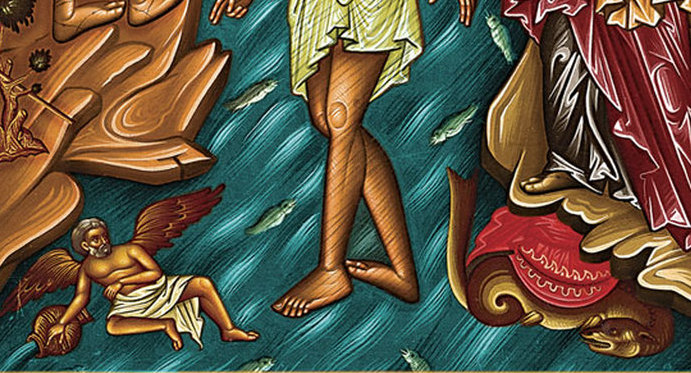
Do we understand the Forerunner as the "man from Eden," fragrant as the morning of the earth in his purity? Do we grasp the ancient significance of water — chaotic, dangerous, and symbolic of the powers of darkness and destruction? The entrance of John the Baptist onto the scene was shocking in its scale and potency. The whole Levant was swept up in its power. For in his person were contained the greatest forces and supreme words in our of our story: the void, creation, Eden, salvation. Consider this story once more but with the eyes and ears of the ancient world.
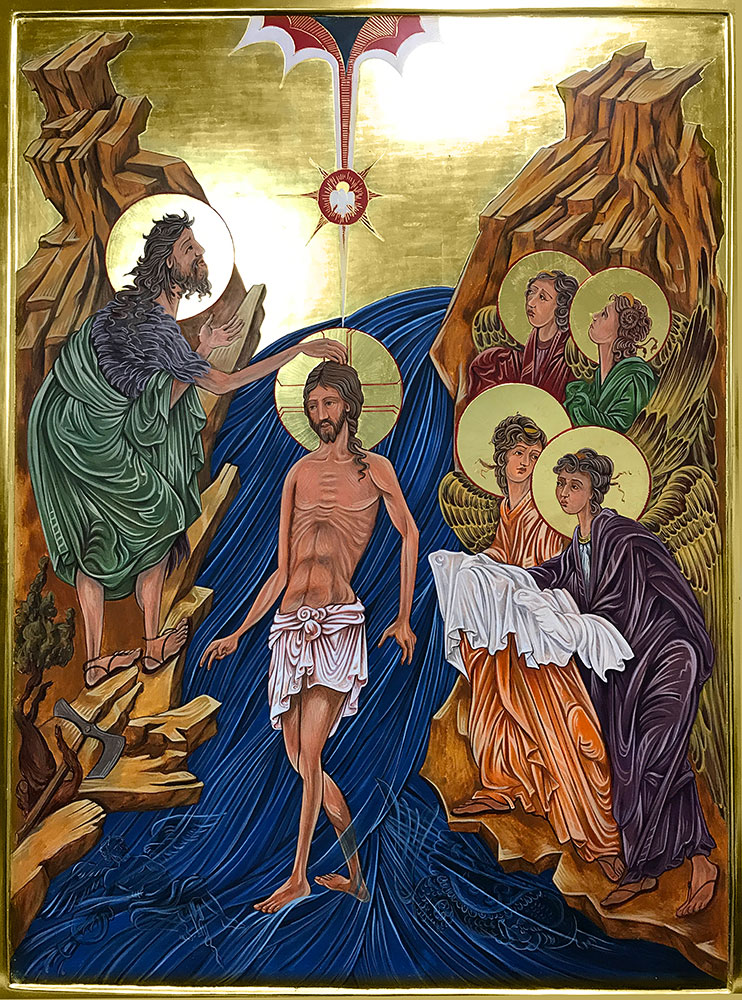
The second greatest feast of Orthodoxy, after Great Pascha, observes "God in man made manifest." Here is the kernel of our lives and of our faith. For as the Fathers plainly saw, God has been our essential nature but lost to us in the darkness of our minds. Only by God sending His Son, a man in Whom God is abundantly manifest ... unto true Godhood, might we discover our own birthright to Heaven. Here is the identity crisis for the ages — royalty roaming the earth in the brutishness of our animal nature. Salvation? Why it has always been ours .... if only we would embrace God uniting our divine nature with His. The path to this embrace is as ancient as our faith: purgation (ridding ourselves of all that is unworthy within us), illumination (having been cleansed, letting divine light fill our lives), and union (having reclaimed our birthright, joining the Father in His empyreal kingdom). Today we venerate the Great Manifestation. Let us give thanks for this, our Heavenly re-birth.

How do you hear Heaven? How do you hear Heaven's most urgent warnings or instructions? To be sure, Heaven's urgings are not rare but rather constant and true and always gracing us like life-giving mists. When we were children, we could see the world with immediacy and clarity. The edge of each leaf so sharp, the fragrance of the woods so keen. Each us us was born with these clear faculties planted within us as surely as our birthright to Heaven. God speaks to this purity within us still, just as He spoke to the heart of a sixteen-year-old girl and to an eighty-year-old carpenter. But if our eyes and ears be dull from gazing too much on the world, then turn to Heaven anyway, for nothing shall be impossible for God. And His mercies are everlasting.
![]()
The question is old as His birth: But if this is God, where is His might? In an ancient world where kings were called "Potentates" and Caesar's power was celebrated with the word "god," we Christians have "folly" (1 Cor 1:22ff). Do we believe the Lord of Hosts could not visit His Almighty Power upon us? Have we forgotten the Day of the Lord and the vast (and shameful) disjunction between the standards of Heaven and our own? God's Son, the Heir, His Own Self, lived among us in His weakness and vulnerability because His relationship with us depends upon our love. In His wisdom, He came to us, Who made Heaven and Earth, in frailty that our hearts might speak to Him in care and devotion and in the language which is His alone: love, real and abiding love.
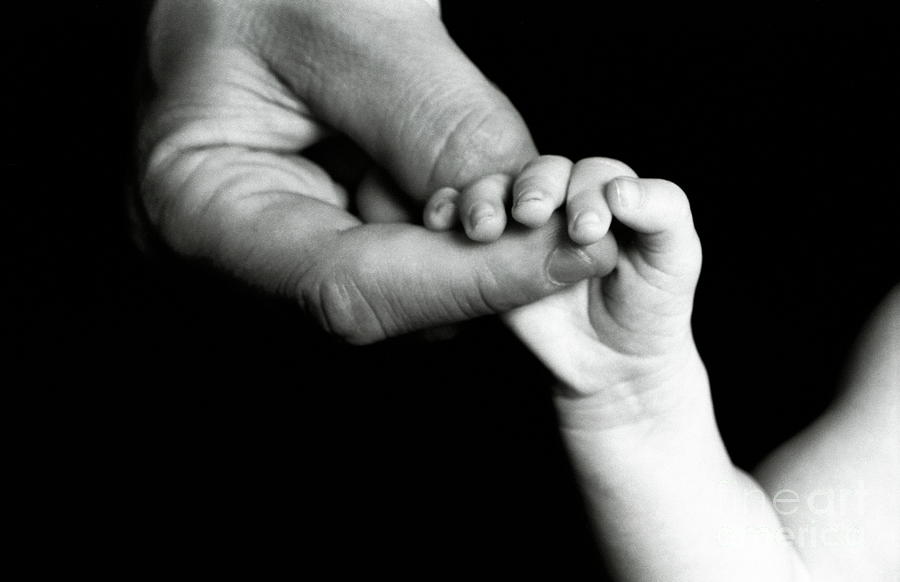
Abraham, a prince of the Chaldees, Moses, a prince of Egypt, living princely life before God's appearance to Moses in the Wilderness of Midian, were called (along with many others) to be a kingdom, not through royal genealogy but through belief and faithfulness. Yes, Moses descended from Abraham through Isaac and Jacob. But what is that since all people on earth have descended from Noah, another patriarch of the nation of belief? We see that this royal "house" is the House of Love — God's offer of a kind of divine sonship through adoption. This morning we read a genealogy in the first verse of St. Mathew's Gospel that does not lead to Jesus, "not of blood, nor of the will of the flesh, nor of the will of man" (as St. John would say on this subject), "but of God." It is of God. And God — Who is outside of time, where sequence and family descent have no meaning or scope, Who is Spirit, which does not depend upon white or red corpuscles or plasma for genealogy — has envisioned a different kind of kingdom. It is a nation based upon our love of Him and His love for us through mutual adoption — including Joseph's adoption of the infant Jesus. It is a nation whose blood and sinews are love. By worldly standards, Jesus holds but a tenuous claim on the modest honor of being of the House of David. Yet, we who believe hold the royal honor of being of the House of God by that same principle: adoption.
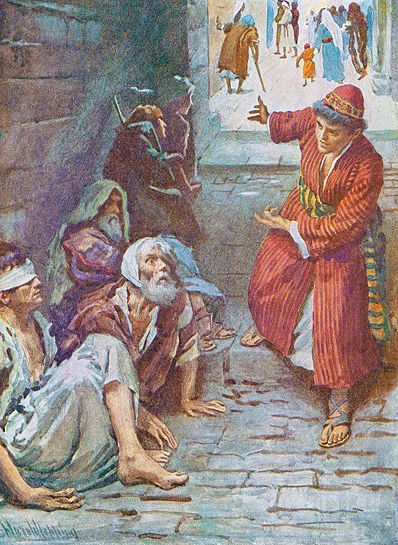
Today, the Orthodox Church honors the Patriarchs: Noah, Abraham, Moses, Jacob ... Is this a "birthday of the Church"? Well, no. Does it venerate the founders of the faith? Not exactly. It is a commemoration of those to whom God offered friendship, which was then fully requited. Noah endured derision and rejection. Abraham and Moses lived princely lives, which they foreswore embracing the wilderness instead. Friendship with God signifies intimacy, learning God's thoughts and ways and, in like measure, a turning away from the world and its false enchantments, which falls beneath godliness. A great king prepared a banquet and invited many. As in all banquets, it was a sign of friendship with God. Its delicacies included eternal life, peace of mind, the reclaiming of one's birthright in purity & goodness. But all declined, for they were wholly absorbed in worldly pleasures. Reject God? Is this not remarkable! No, not if we look out the window and see that this is our norm today. Indeed, "what we list" (whose noun-form is "lust") is commonly the cause for declining all that God offers. Who are the Patriarchs, then? They are those who set aside their lives, lives of privilege and luxury, in order to be available for real friendship with God. For friendship with God begins with relinquishing our lusts in order to make room for His ways and His mind and the spirit of goodness. We cannot have both.
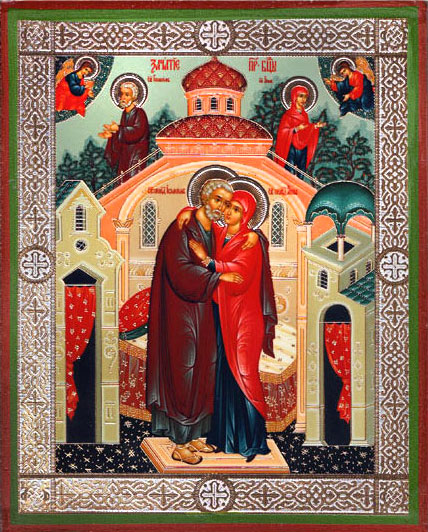
How do we discover God's expectations for us as individuals? Often this sacred process, which we call theosis, is a journey through suffering and struggle and finally in being laid bare. After all, the world does not belong to God in the mystery of His self-depreciating gift of freedom to humans and angels. The world, time and again, turns out to be the implacable enemy of God (as the NT and our own experience reveal). To live godly lives, we must swim against the current, must carve against the grain. We must strip ourselves of the world's debris, which otherwise would cling to us. But the end result will be purity and goodness and right. It was this process, striving for purity, that made possible the conception of the Most Pure Theotokos.
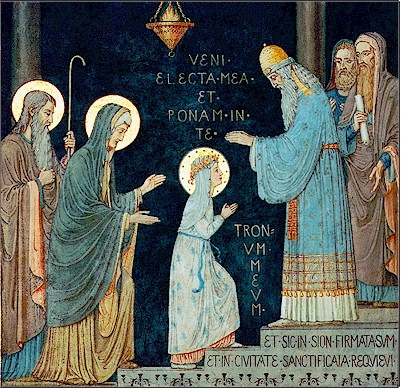
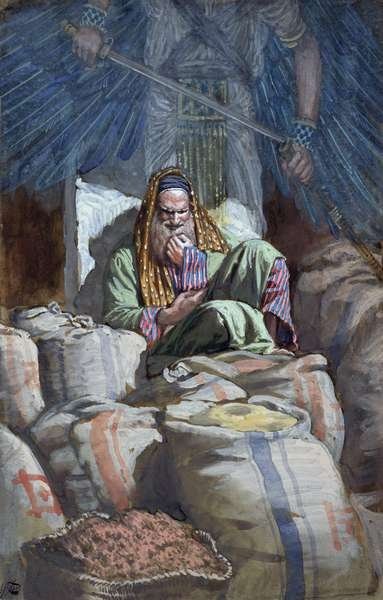
Who does not notice that we in the U.S. (and in much of the English-speaking world) are now living a double life? Have developed a split personality, to the grief of our souls? The human spirit longs for integrity, where every inner thought and impulse fit together harmoniously in a state of peace. But our culture, with breathtaking speed, has forced us into a life where we are constantly pulled in two directions. We have our former culture and life, where from late October until late December we remembered who we truly were, where we were going, and what mattered most. Now we have the same timeframe but all the former significance has been lost, replaced by a version that has stood our beloved, age-old customs on their head.
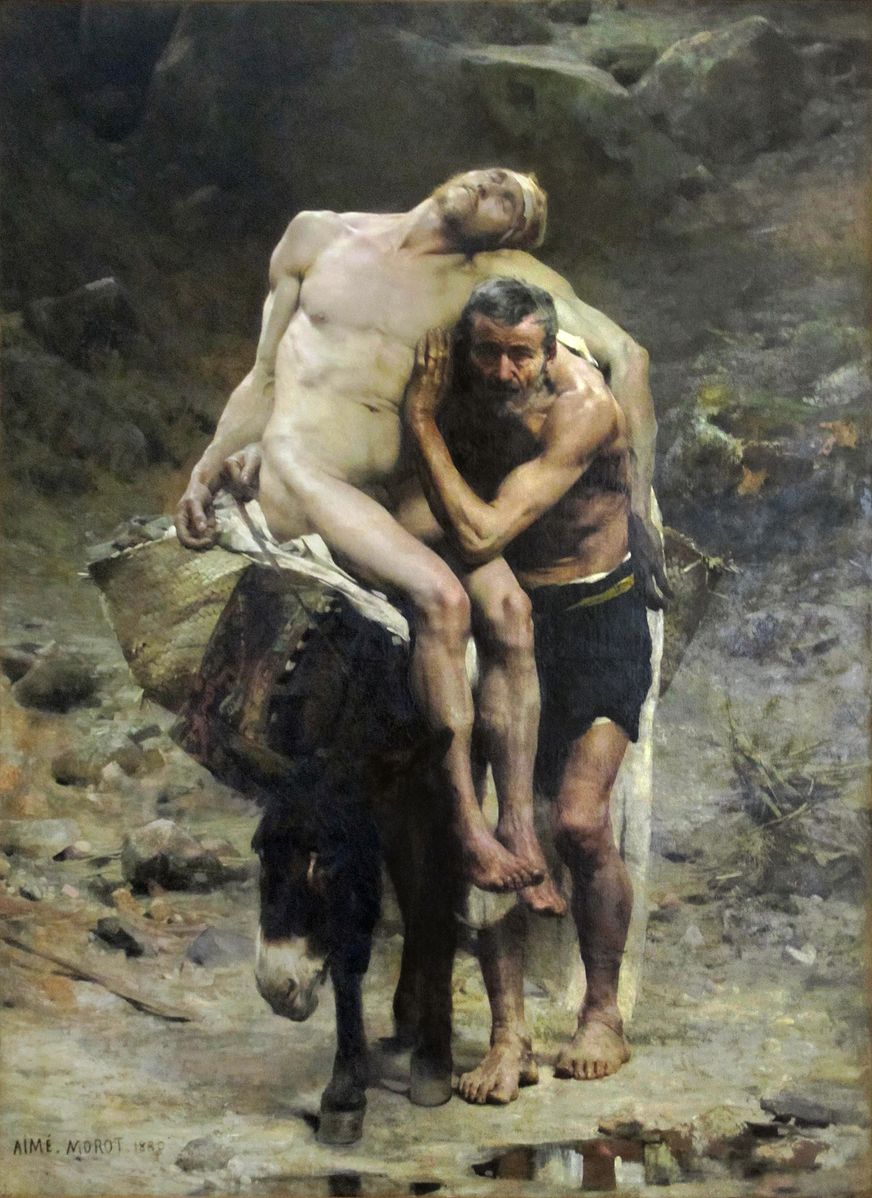
23rd Sunday after Pentecost (Eph 2:2-10, Ps 19:7-10, Lu 10:25-37). In last Sunday's lections Jesus set out a meditation on the foundation stone of Heaven, which is Agape. This week He continues that meditation by asking us to reflect further on His commandments, which alone constitute the gate into the garden of His friendship (Jn 15:15). His conclusion is shocking — as bursts of illumination frequently are.
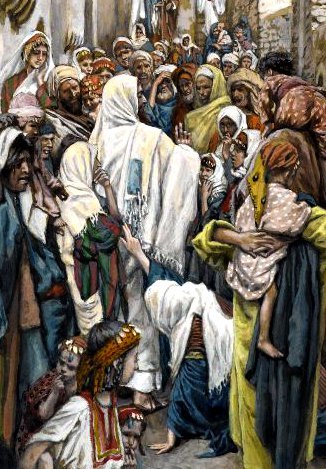
This morning we learn that we, receiving mercy and peace, will walk upon the "Israel of God" if we follow "a rule." Where is this mysterious land, the Israel of God? What is this rule? As we dig deeper, we discover a shimmering word, shining ever brilliant as a diamond. And it turns out that the Kingdom of God revolves around this burning point, this ever-radiant word.
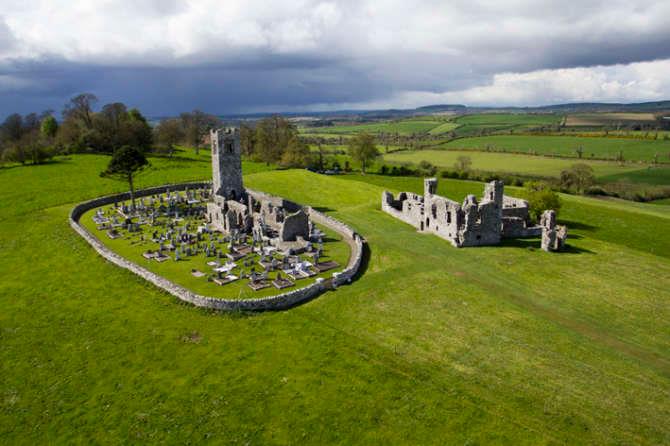
November 2, 2019 (Holy Calendar), Feast of St. Erc, Abbot (512)
He was one of many tens of thousands who over the centuries confirmed a long established Orthodox Christian belief and life in Ireland, Scotland, the British Anglo-Saxon kingdoms they evangelized. Through his life we are given a little window into the contemporary scene, for he was one of the few who welcomed the Roman missionary St. Patrick and his Roman fellows. We must understand that by the sixth century, Christianity had long been the religion of the Roman Empire. In that sense, these Roman missionaries were an acculturation force synchronized with the Roman Legions, for everything in Rome was planned and engineered and executed with military precision. Their "minister of information," the Roman Benedictine St. Bede, would have us believe that the Roman missionaries set out into an unchurched Britain. Well, to be sure, many pagans remained, but the Celtic saints had been evangelizing Britain for centuries. And this explains the caution of many Irish saints — what are the true intentions of these foreign Christian visitors?
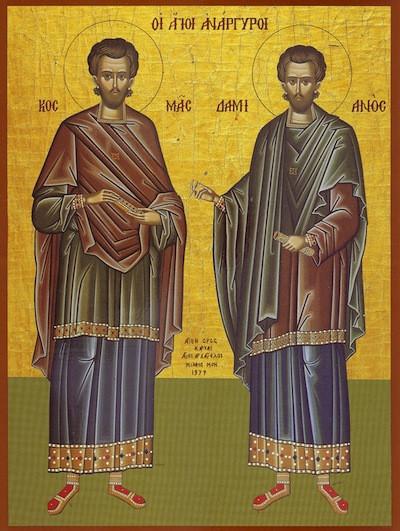
November 1, 2019 (Holy Calendar), Feast of Ss. Cosmas and Damian (d. 287)
Ss. Cosmas and Damian, November 1 (Holy Calendar). Called the "Silverless" and the "Unmercenaries," these third-century martyred saints offered their medical arts to the suffering accepting no payment. They were skilled doctors and pharmacists who developed remedies that would be used for centuries, yet martyred by order of the Emperor Diocletian. These saints are special to the Hermitage. For the Sisters here spent many years of their lives in the Third and Fourth Worlds offering their arts of medical healing and nurture for no charge. No one at the Hermitage has ever received salary or payment of any kind for ministry, nor would they. Visit places like Haiti, and you will find young men and women (mostly women) who loved the friendless, the alien, and the ill at age 15 and 16 and 17, entered religious orders, and who are now turning 70 and 80, still loving, still giving, still filled with joy. For they are the trusted friends of Christ. Pray for us Ss. Cosmas and Damian that we may forget our worldly entanglements and fascinations and get on with real life before any more precious time is lost. Amen.
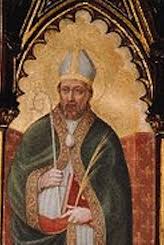
October 31, 2019 (Holy Calendar), Feast of St. Foillan, Abbot (b. 600)
He left Ireland with his brother St. Fursa as they were surrounded by multitudes, some of whom wished ill for them. They were welcomed in East Anglia which had long before been converted under Irish Celtic spiritual discipline, and St. Fursa presided over a monastery there. But Fursa sensed ill will around them and departed into Gaul. His prophecy was fulfilled as pagans from Mercia invaded and deposed the East Anglian king. St. Foillan followed his brother into Gaul, where he was warmly received that he might preside over Irish discipline for worship and formation. Tragically, he was killed by bandits who stripped and robbed him. The legend reads that he continued to pray after his head was separated from his body. In St. Foillan and St. Fursa we see the journey of Christ — multitudes and ill-wishers, those in need of guidance & formation along with conspirators, and an aching and broken world in need of saints. The way of Christ — it is the great example calling to us today.

If we do not get the right directions, we shall never find the right destination. And should that destination be the one on which everything depends, then directions become more than a passing problem. Our world of 2019 is full of wrong directions where Christian life is concerned. Yet, have these precious directions been carefully preserved and protected and available to all.
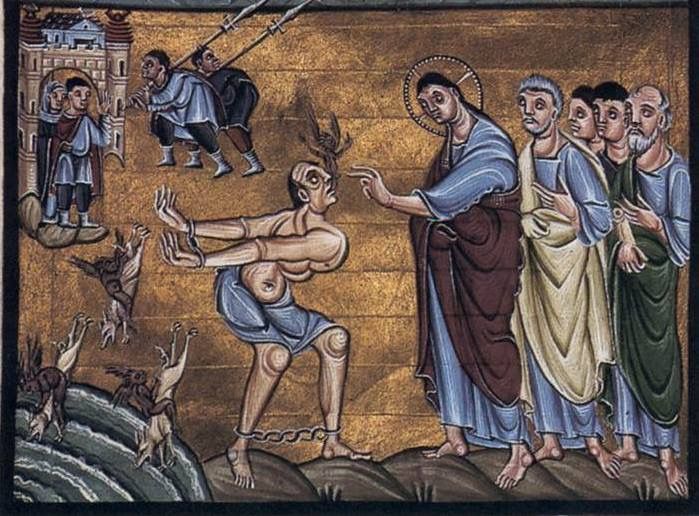
Today, Jesus encounters a man who in his very person is the Lost Sheep of Israel on the eve of their destruction, now alone with God and offering a most sincere heart and soul to be healed and restored to godliness, which is then granted. It is one of the central and most important of all Gospel stories. It calls us to consider questions that are paramount for the living of our lives. What is the nature of Christian life? What must we do to enter the Kingdom of Heaven? What is the Advent of Christ, and why did it happen when it did? This last question might seem to lead us into high-order theological considerations. Surprisingly, the answer is simple and speaks directly into our individual lives today. In the Gadarene demoniac we find a little allegory of God's restoration of all that had been lost. It is the "might have been" but "was not to be." "A wandering Aramean my father was," begins the Seder prayer each year. Join us as we wander through Aram with Jesus. He has much to tell us this morning.
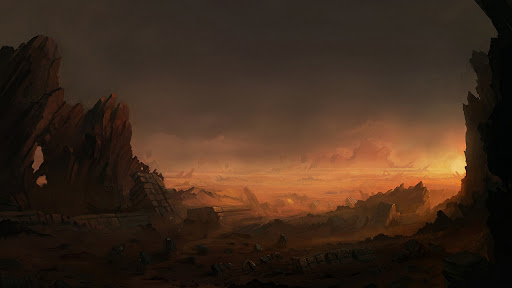
Consider those who have been granted friendship with God, and you must own a startling principle. In every case a former life is discarded, even annihilated. Adam, Abraham, Sarah, Jonah, Job, Moses, Elijah, the Apostles, Saul of Tarsus, the saints. Yet, during the modern era, this sublime fact has been domesticated into a more acceptable version: that God is there to grant our every wish and prosper our material lives .... as a reward for believing that He exists! C.S. Lewis responded to this by writing, "Father God is not a senile old grandfather with a big white beard who simply wants everyone to be happy." No, Father God has greater happinessess in mind for us, far beyond what we can see or imagine. Nor would He be pleased to see us entranced by a world of false and unlasting happiness. His wisdom and His love may not be what we planned, but it always surpasses our short-sighted dreams by far.
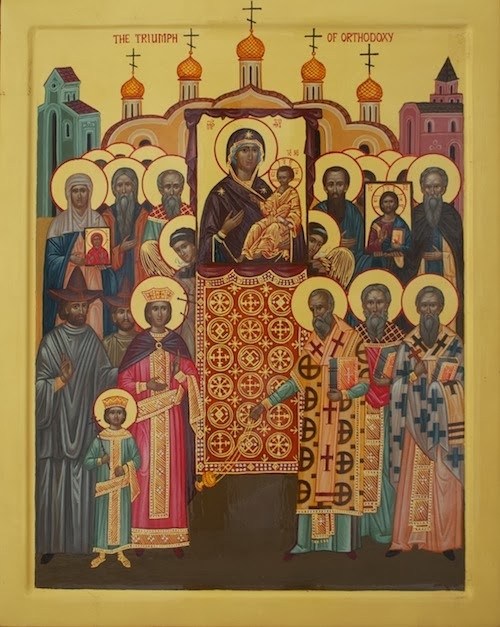
If not for the saints... We continue to be wax that might attain to and support a little flame, but they are all fire. Our feet are of clay, but theirs no longer touch the rocky ground. We stumble in darkness, but they light the way to our goal. Their images before us are luminous with Heaven's light even as we gaze upon their faces — reminding us that we too will be resurrected in all our beauty .... if we would follow them. Let us give thanks today for the saints who have protected our faith and our way of life. For without their bright examples set before us, we would surely become lost.
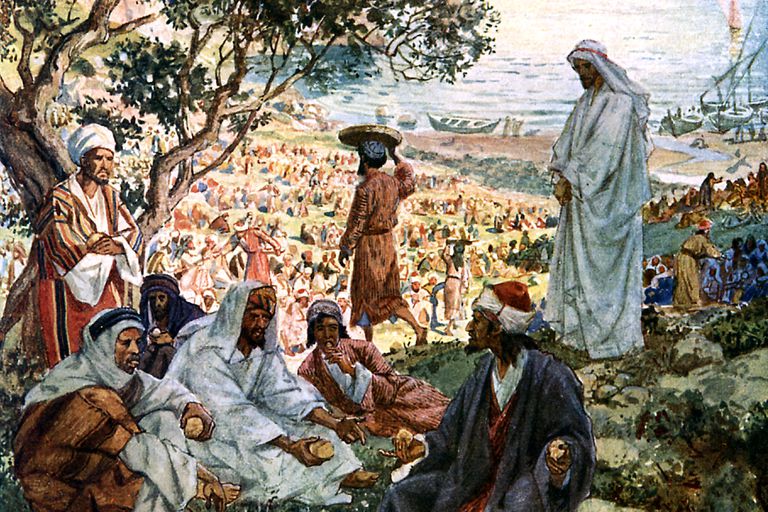
Let us stand on a nearby hilltop 2,000 years ago and look on as God performs His signature act: alone in the wilderness with His chosen people. How many are there? 20,000? 50,000? More? He does what only God could do (as He points out). He feeds them all with ease lacking material means to do so. Let us ask the central question. It is the question He asks: "Who do the people say that I am?" They should know without hesitation. How many times have they heard the story? How God brought them out of Egypt, how He brought them to a place apart, a place of intimacy, and how He loved them and cared for them and fed them and provided for their every need? No Scriptural story is retold as often as this one. Is this not the moment when all present might press their heads to the ground and say, "O God Almighty, how is it that we have been granted that highest privilege of Moses: to see God ... and not His back (Ex 33:23), but face to face?!" Would not this have been the culmination of human history? Would not this have changed the course of all events ever after? But this is not what is to happen. As He has encountered on so many occasions, the people either depreciate Him or inveigle to secure personal or political favors. They cannot see God.
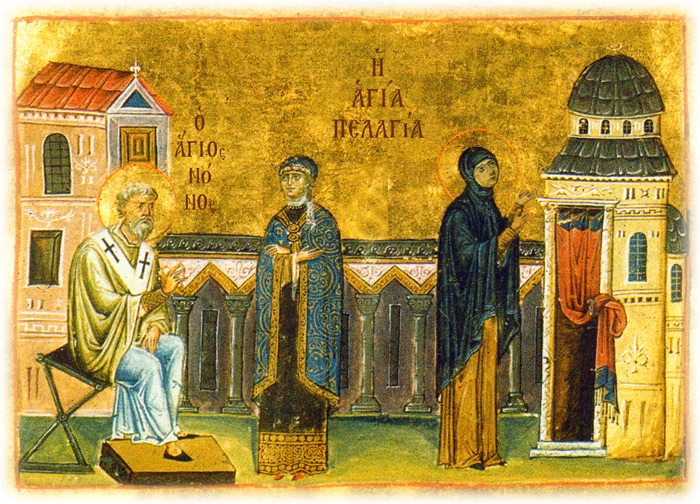
"How meticulously she prepares herself each day! How beautiful is this woman of our city!" said St. Nonnus, a bishop of Syria. "Yes, she has lived a notorious life, but if we took the same meticulous care in our prayers and in the daily presentation of ourselves before God, how beautiful our souls would be!" Soon, when Pelagia was convicted by Nonnus of the certainty of God and of the faultless judgment of our real and actual lives, she repented and then lived a spiritual life as meticulously carried out as was her former life — a soul beautiful to all who saw her. What does a beautiful soul look like? It is surrounded by a life of integrity — a life in which each part of one's life is accountable to every other part. There are no surprises, no dark secrets, no hidden habits. It is a life lived with meticulous honesty and cleansed by the purest waters, which are the tears of the truly contrite heart.
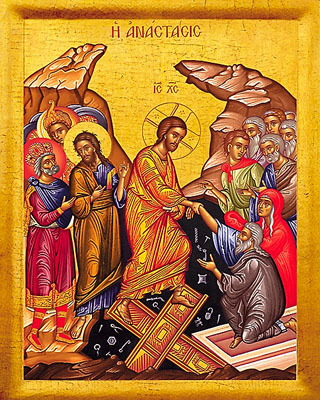
Which lesson surpasses the knowledge that we rely completely upon our God? Which prayer is truer than this one: "For all things come from Thee, and from Thine own have we given Thee" (1 Chron 29:14)? When we see Jesus restoring a son of Na'in to life, we see much more than the addition of his days in the world. For a widow without sons in the ancient world quickly became the face of the blasted and the lost. Do we not see these old women sitting on the curbs on our inner cities, vulnerable to any kind of attack and exposed to the weather? God's gift is life and the force of living. I give thanks for my recent illness, which brought me to that clear place where I apprehended once again our complete dependence upon God. He is strong, and we are weak. He is all providence, and we are all need. He is all goodness, and we are vessels of clay ... containing a certain treasure which is His love and approval and assurance of good. Thank you for your prayers, dear friends. For when we pray for each other, we affirm once more our filial love of the God and Father of all.
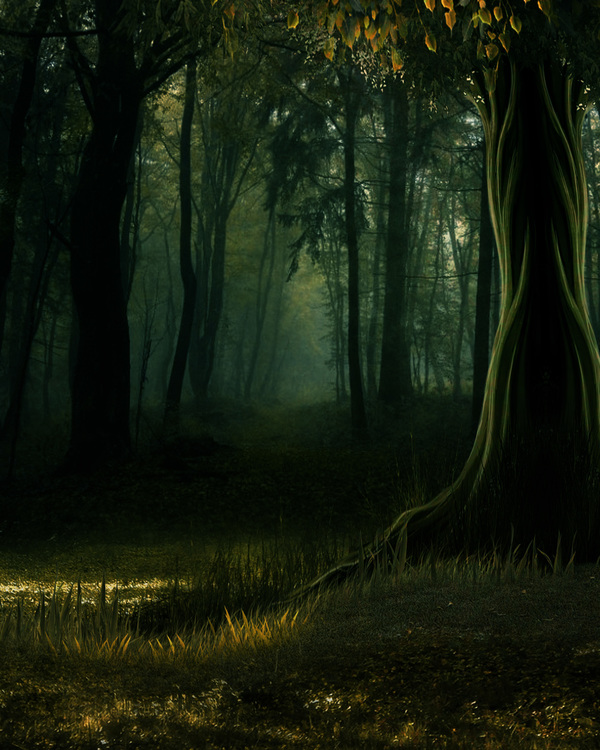
In this morning's Gospel we learn that Jesus is being tested. Surely the purpose is not to learn whether a great Teacher knows the "great and first commandment"! No, something else is afoot here. The question being implied is this: Does He love God? Or does He believe He is God. We are reminded of Rabbi Harold Kushner who wrote in the '80s that God is not a rock star who writes fan mail to Himself (so Jesus, Who teaches the Lord's Prayer, cannot be God). But both Jewish teachers miss an important detail: Jesus is God AND the Man Who models godlike life for His people. As Psalm 82 teaches, "Ye are gods." Certainly, we ought to be godlike (a modern synonym might be godly), for that is what we were made to be. A primary purpose of the Advent of the Lord Jesus Christ was to remind us what we were made to be, what we were supposed to look like, or to Whom we belonged. At issue is this: our life surely is a holy mystery, but the mystery of our lives can also become an unwholesome and alluring fascination. "The awful thing is that beauty is mysterious as well as terrible. God and the devil are fighting there. And the battlefield is the heart of man" (The Brothers Karamazov). Into which mystery will we be drawn, the holy or the unholy? Discern carefully, for each road leads decisively to an eternal destination.
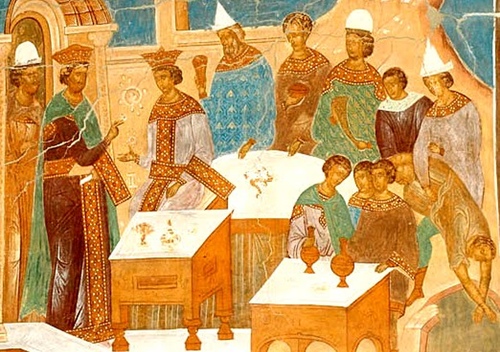
Last week we considered the essence of religious life. This week the reflection is drawn wider to include the world and its generations. The subject, of course, can never change, for God is the nucleus of every human creature. The drama is always between this creature and its own essence. Consider for a moment the wrathful King and His troops. They destroy God's enemies. By what manner? They simply stand back and watch these condemned people wither, for God alone is life, and the decision to separate from Him is eternal ... as all choices having to do with God have eternal implications. You see, life or death is matter of choice. And choosing to love God (or not) is a matter of life and death. As St. Paul said in last week's Epistle lesson, "All of those who do not love the Lord Jesus Christ are accursed." For this is our most ancient prayer and greatest divine command: "Hear! O, hear, Israel! The Lord thy God is One. And thou shalt love the Lord thy God with all thy heart, with all thy soul, with all thy mind, and with all thy strength!"
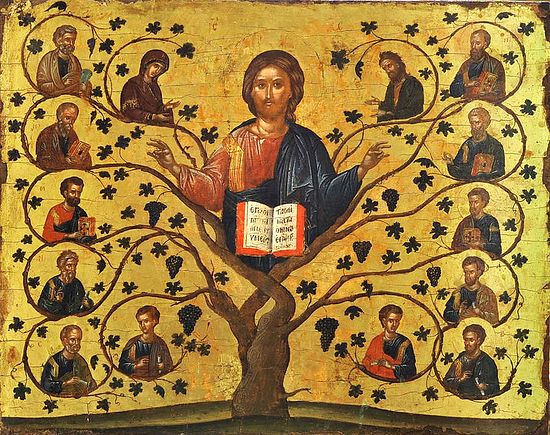
This morning we consider the heart of spiritual life, which is, in the face of all abundance and completeness, to be helpless and completely dependent upon God. This is His will for us as anyone on spiritual journey discovers repeatedly. We are to be a tender vine safely cultivated in a holy atmosphere, with the world and its wildness pushed back with stout walls. He watches over us from His watchtower and protects His vineyard. Yet, all too often we bring our wildness with us, rebelling within His very Kingdom. Nonetheless, such rebellion is nothing compared to desire to take over the entire vineyard itself — a replay of the the War in Heaven or of the rebellion in Eden. We Who love God seek to be helpless and dependent on the One Who tends us, Who feeds us, and Who loves us, that He may cultivate that quality within us which is ... Him. This is the purpose and daily round of religious life — the world pushed back that the Kingdom of God and its holy atmosphere might have its place in the sun. For He longs for the tender vine to come to fullness ... assuming the comely abundance and perfect likeness of His Son.